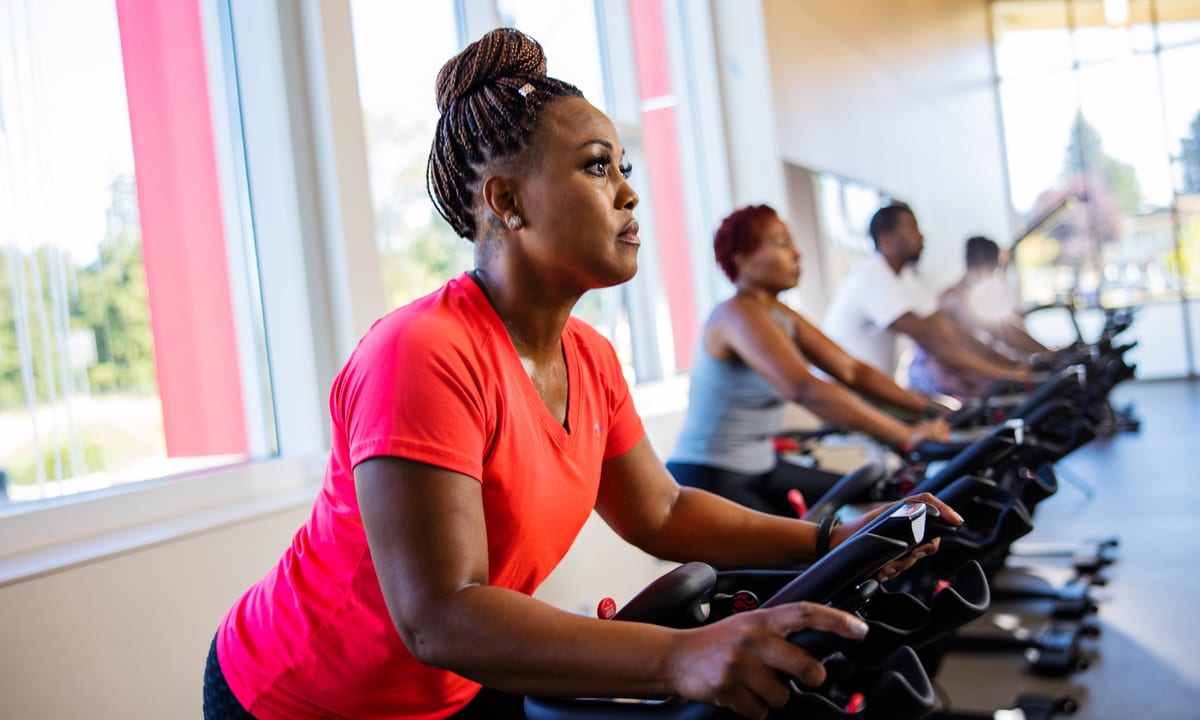Realistic resolutions

While New Year’s resolutions are a time-honored tradition for many of us, these well-intentioned promises to do better and be better can easily result in guilt and self-doubt when we discover all over again that change is hard. But that doesn’t mean you have to resolve not to make resolutions. It just means, as we’ve learned with everything over the past couple of years, sometimes we need to adjust our expectations.
Kim Chupurdia, PhD, clinical psychologist at MultiCare’s Rockwood Clinic, says with a few simple tweaks, your resolutions can potentially be much longer lasting and successful.
Be realistic
The first mistake we often make is in setting unrealistic goals, then feeling like we failed when we can’t meet them.
“Ask yourself, ‘Can I actually do this? What are potential barriers to this goal?’” Chupurdia says.
For example, setting a goal to go to the gym every day will set you up for failure because there are so many potential barriers.
“Maybe it would be more realistic to start with a goal of going to the gym once a week,” she says, “and build on it from there.”
Breaking down a larger goal into a series of smaller goals is often more motivating.
“Once you master a goal, such as eating five servings of produce, perhaps your next goal would be to pack a lunch in order to avoid fast food.” Chupurdia says.
Beyond making sure your goals are realistic, you should focus on something you can control and measure.
“For example, if you want to lose 20 pounds, your goal should not be to lose 20 pounds but to add healthy behaviors that will likely lead to weight loss,” she says. “We have little control over how our bodies will lose weight, but we can control adding exercise, eating more vegetables, and so on. And that is also something we can measure to define success.”
Think positively
Chupurdia says people are much more successful with goals that use positive terms and add behaviors rather than removing them.
“We are much more successful with goals that use positive terms and add in behaviors rather than removing them,” she explains. So if you want to stop smoking, what are you going to do instead of smoking?
“Perhaps that means attending yoga once a week to learn new stress management skills,” she says. “Positive goals lead to more success.
Build on existing habits
It’s important to note that there is no magic formula for making something a habit.
“I have heard people talk about doing something for a certain number of days will make it a habit, but there really is no specific way that works for everyone.” Chupurdia says. “In general, if you want to start a new habit, you will need some ways to work it into your existing routines. If you want to take vitamins or a medication, maybe putting them by your toothbrush or your coffee pot will help you remember them in the morning.”
And don’t expect that you can magically change who you are.
“Adding a new behavior is easier if it is something you enjoy and if it is something that fits with your values.” she says. “When something lines up with our beliefs, we are more likely to find it rewarding and want to do it again.”
Make technology your teammate
“I am also a big fan of using digital reminders such as your phone,” Chupurdia says.
Beyond just reminders to drink some water or get up and move, she recommends setting a reminder to have a weekly check-in with yourself to review your progress.
“If you did great, ask yourself if you are ready to add a new goal or if you want to keep your focus on maintaining this new change,” she says. “If you had some struggles, write down what got in the way and see if you can problem-solve these barriers for the next week. Goals really need to be fluid and change rather than be set in stone.”
Give yourself a break
Just because the calendar says January doesn’t mean it’s a good time to make changes. If your stress level is high already, it’s probably not a good time to try to add a new behavior.
“Changing habits takes energy and motivation which are in short supply when you have a lot on your plate,” Chupurdia says.
If you don’t have the time and energy to devote to the behavior change, just don’t do it. Changing habits is hard in the best of times.
And if you do have the time to devote to making changes, pick just one.
“Your chances of success are highest if you focus on one new goal at a time rather than trying to change a whole bunch of things at once,” Chupurdia says.
Whatever positive changes you want to make and whenever you decide to make them, take it all one day at a time. If you slip up today, tomorrow is always there for a fresh start.




